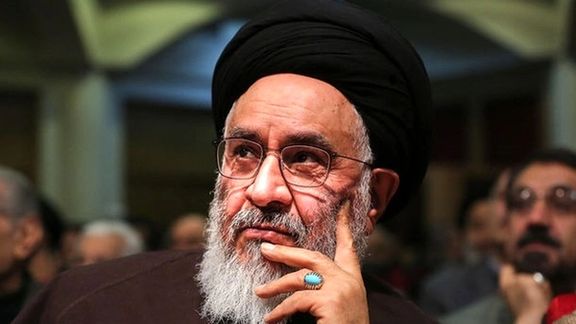Prominent Ayatollah In Iran Condemns Execution Of Protesters

A few days after the execution of two detained protesters, a prominent cleric in Iran has voiced his objection to excesses and called for fair treatment of inmates.

A few days after the execution of two detained protesters, a prominent cleric in Iran has voiced his objection to excesses and called for fair treatment of inmates.
At the same time, tens of Friday prayer Imams as well as some other hardliner clerics supported the executions and demanded longer prison sentences for protesters. One Imam, firebrand Ahmad Khatami in Tehran said that Supreme Leader Ali Khamenei “speaks for God Almighty” and that his orders should be obeyed as sacred words.
Khatami added that confronting Khamenei is tantamount to standing against God and his saints and prophets.
Elsewhere in Iran, another cleric, a member of the Assembly of Experts, Abbas Ka'bi supported the protesters' execution and said at the Qom Seminary that protesters disrupt public security and thus they fight God and should be executed.
Many Iranian clerics as well as Muslim scholars in Iran and other countries have objected to the execution of protesters on religious grounds of punishing those “who fight God.”
Meanwhile, another hardliner, Ahmad Alamolhoda, who represents Khamenei in Khorasan Province in northeast Iran said on Friday that those who chant, "Woman, Life, Freedom" are godless. He also described those who are against compulsory hijab in Iran as "mercenaries."
Alamolhoda, who is the father-in-law of President Ebrahim Raisi, further claimed that God belongs to the Islamic Republic and that there is no God for the enemies of the clerical regime in Iran.

Confronting the extremist clerics, Ayatollah Mostafa Mohaqeq Damad, the Chairman of the Islamic Studies group at the Iran Academy of Sciences has criticized the hardliners who call for maximum punishment, saying that individuals who have no legal knowledge of justice are forcing themselves upon the Judiciary .
Damad was also referring to a majority of Iranian clerical judges who happen to be ruling at the revolutionary courts, accusing them of lacking the academic background required for anyone who wants to be a judge.
After the establishment of the Islamic Republic in 1979, people with minimal educational background were appointed as judges as political appointees of the ruling clerics. As a result, many defendants and lawyers have pointed out that judges take their orders from the security forces and in fact the verdicts issued for political prisoners come from the intelligence organizations.
Damad also condemned the "unforgiveable" executions in the first years of the Islamic Republic as a stigma on the face of the Islamic government in Iran. He added that history will not forget the bloods spilled because of unfair and illegitimate punishment.
During the past three months as security forces have sent thousands of protesters to jail for taking part in protests, many inmates and their families have voiced concern about harsh treatment and brutality in Iranian jails and courts. Many inmates have complained that they have been denied the right to be represented by lawyers. As an example, Mashaallah Karami, whose son Mohammad Mehdi is in jail and sentenced to death told Etemad online that they have not been allowed to have their own lawyer. The court has appointed its own lawyer who does not answer his phone calls. Karami added that the revolutionary court tells the families that their children have apposed God and his prophet, while they were demanding democracy and freedom.